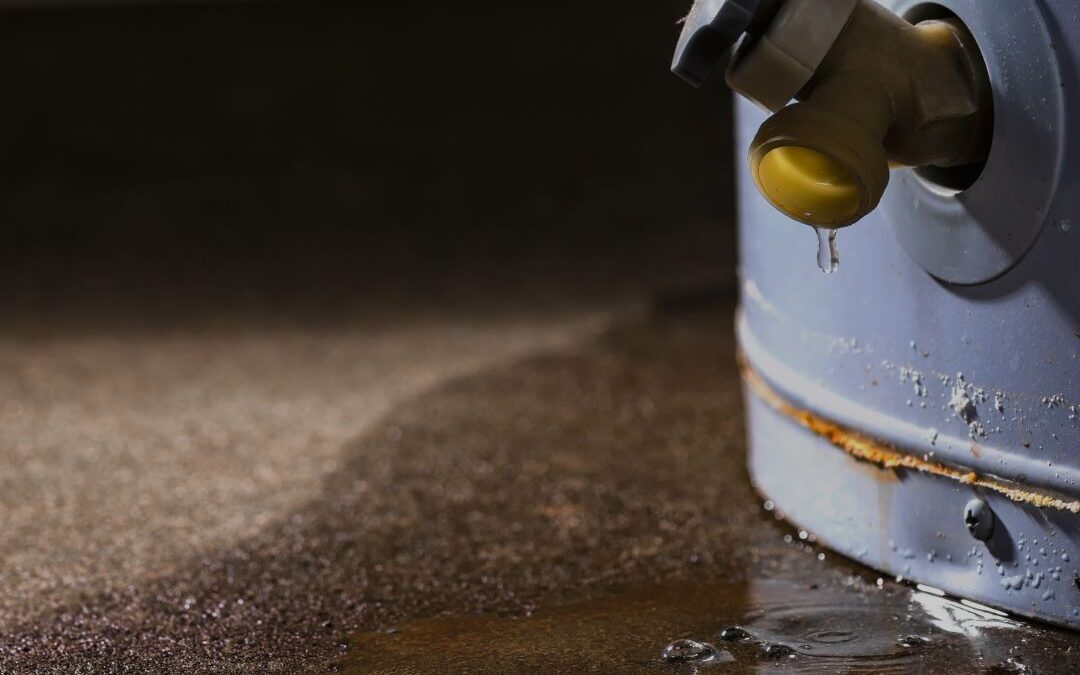Your water heater is a workhorse, silently providing hot water for your daily needs. However, a leaking water heater can throw a wrench into your daily routine and raise concerns about potential damage. In this article, we’ll explore the various reasons why your water heater might be leaking, from minor issues to more severe situations. Understanding the root causes can empower you to address the problem promptly and prevent further damage.
1. Pressure Relief Valve Issues
A pressure relief valve is a critical safety feature in water heaters, designed to release excess pressure to prevent the tank from exploding. If the valve is faulty or experiencing issues, it can lead to leaks. Common problems include a corroded valve, improper installation, or a stuck open valve. Regular pressure relief valve testing and prompt replacement, if any issues are detected, can prevent leaks, and ensure your water heater’s safety.
2. Corrosion and Rust
Over time, water heaters are prone to corrosion. Corrosion can weaken the tank’s structural integrity, leading to leaks. Rusty water or visible rust on the tank’s exterior are telltale signs of deterioration. Anode rods, which are designed to sacrifice themselves to protect the tank, should be inspected regularly and replaced when necessary to prevent corrosion-related leaks.
3. Sediment Buildup
Sediment can build up and is a common issue in water heaters, particularly in areas with hard water. Sediment can settle at the bottom, creating a layer that can trap heat and cause the tank to overheat. This overheating can lead to cracks or distortions in the tank, resulting in leaks. Regular water heater maintenance and flushes can remove sediment and are preventive measures that can extend the lifespan of your unit and prevent leaks.
4. Loose or Faulty Drain Valve
The drain valve is located at the bottom and is used for flushing or draining the tank for maintenance. A loose or faulty drain valve can result in leaks. Ensure that the valve is closed correctly and tightened. If there’s a leak from the drain valve, it may need to be replaced. Using a hose bib cap or installing a new drain valve can resolve the issue and prevent further leakage.
5. Faulty Temperature and Pressure Relief Valve
Temperature and pressure relief valves release excess pressure and temperature within the tank. If these valves malfunction, it can cause leaks. Check for water discharge from the TPR valve during regular operation, such as when heating water. If water continues to flow or the valve leaks, it may need to be replaced. Never block or cap the TPR valve, which could compromise the water heater’s safety.
6. Leaking Tank
A leaking tank is a serious issue often signals the end of the water heater’s lifespan. Corrosion, cracks, or a damaged tank can result in water leakage. If you notice water pooling around the water heater’s base, inspect the tank for visible signs of damage.
Unfortunately, replacement is the only viable solution if the tank leaks. Routine maintenance, including anode rod replacement and flushing, can help extend the life of your water heater and prevent premature tank failure.
7. Condensation
In some cases, what appears to be a water leak may be condensation. Condensation can form on the tank’s exterior when cold water enters a warm tank. While this is generally harmless, it’s essential to rule out other potential causes of leaks. Insulate the pipes connected to the water heater to reduce condensation and thoroughly investigate any apparent leaks.
8. Faulty Internal Tank Seal
The internal tank seal is responsible for keeping water contained within the tank. If this seal is compromised through wear and tear or a manufacturing defect, it can result in leaks. A leaking internal tank seal is a serious issue that often requires professional intervention. Attempting to repair or replace the seal without the necessary training can lead to further damage.
9. High Water Pressure
Excessively high water pressure can stress the water heater, leading to leaks. The recommended water pressure for most homes is between 40 and 60 psi. If your water pressure exceeds this range, it can strain the tank and its components. Consider installing a pressure-reducing valve to maintain optimal pressure levels and prevent potential leaks.
10. Poor Installation or Seals
Improper installation or faulty seals can contribute to water heater leaks. Water can escape if the connections between pipes, valves, or the tank are not properly sealed. Ensure that a qualified professional installs your water heater and regularly inspects the unit for any signs of water around connections. Promptly addressing any issues with seals or connections can prevent leaks and extend the life of your water heater.
A leaking water heater is a concern that requires prompt attention. By understanding the potential causes, you can proactively prevent leaks and address issues before they escalate into more extensive and expensive problems. Regular water heater flushes and maintenance, inspecting valves, and testing safety features are essential for ensuring the longevity and efficiency of your water heater.
Suppose you encounter a severe or persistent leak. In that case, it’s advisable to seek the expertise of a licensed Charleston plumber to evaluate the situation and make recommendations. Remember, early detection and preventive measures can save you from the inconvenience and cost of extensive water heater repairs and replacements.
To schedule an appointment for water heater repair in James Island and the surrounding areas. Contact us today at (843) 556-9550 or request an appointment online by completing our service request form.

